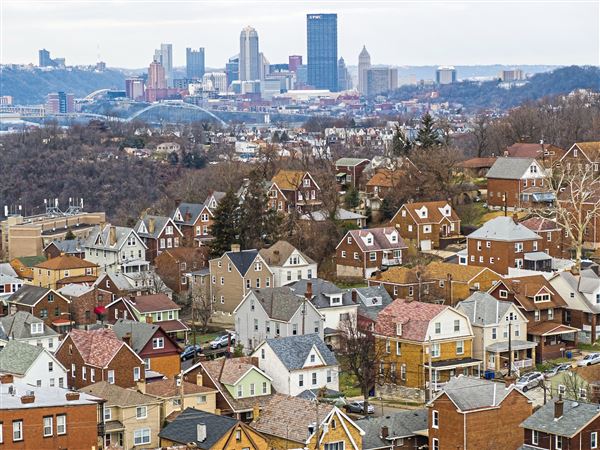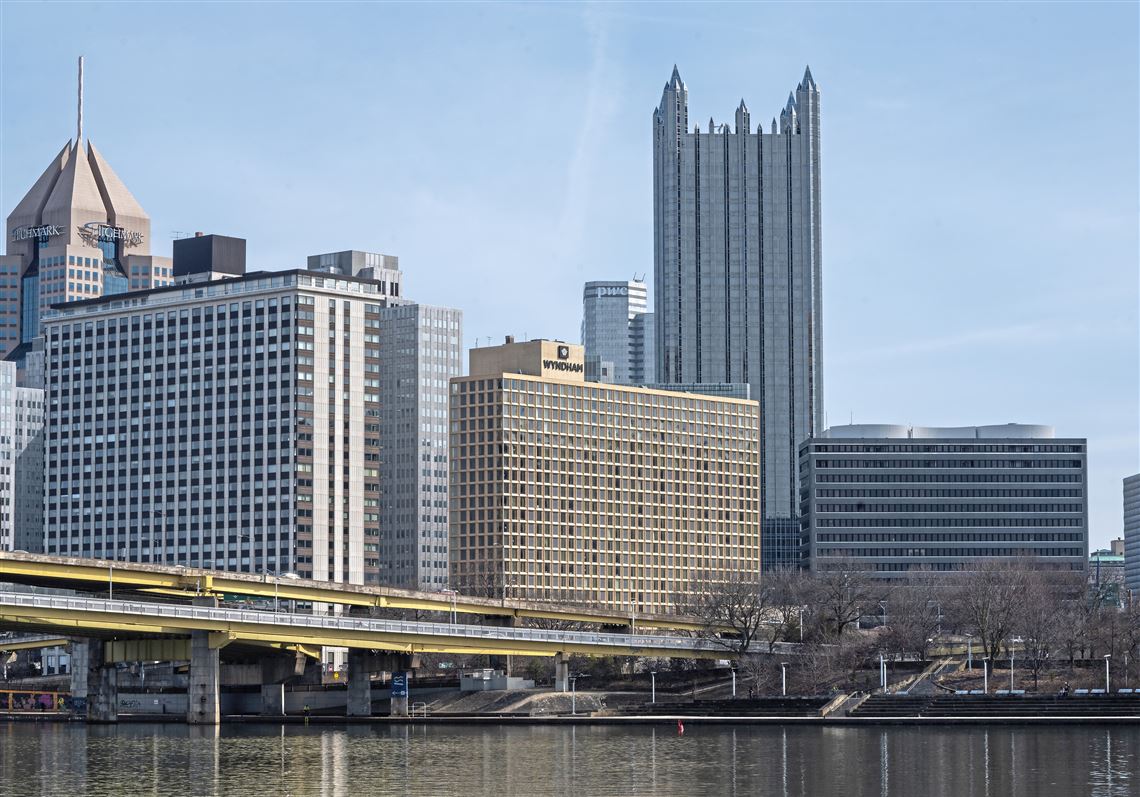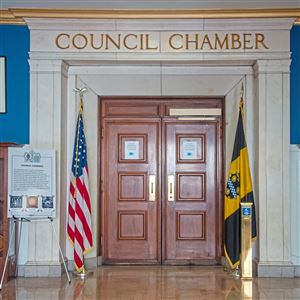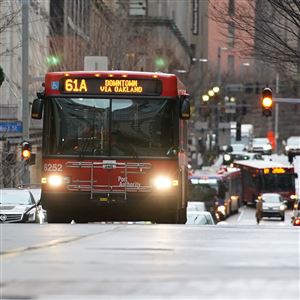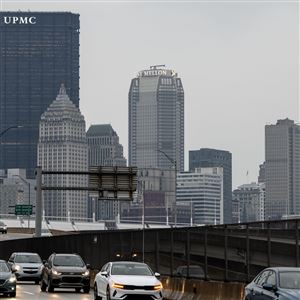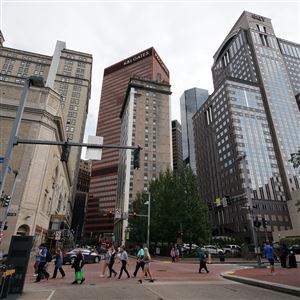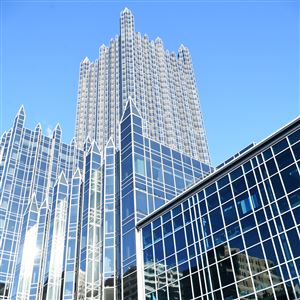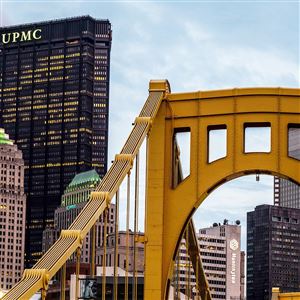The Downtown office crisis could be worsening, with nearly half of all office space empty by 2028 and more than two dozen buildings in danger of foreclosure, according to one confidential report.
Faced with such a grave scenario, Pittsburgh City Councilman Bobby Wilson is drafting legislation that would remove a $250,000 limit on the amount of tax relief available to a building owner or developer as long as a project creates at least 50 full-time equivalent jobs, according to sources familiar with the bill.
Owners and developers also would be eligible for the uncapped abatement if 10% of the residential units developed are set aside for households at 80% of the area median income. The abatement would run for 10 years.
Even in cases where a building owner or developer can’t meet the requirements for the full abatement, they still could qualify for some level of relief under the legislation, which is in draft stage and could be changed.
Any abatements would be applied against the increased value of the property, not the prevailing assessment, so the city would not be losing any current tax revenue.
Mr. Wilson is advancing the new legislation at a time of growing turmoil Downtown involving some of its biggest and most iconic skyscrapers.
So far, the property assessments on 10 buildings, including U.S. Steel Tower, PPG Place, and the Tower at PNC Plaza, have been slashed by $364.4 million for the 2023 tax year, as high vacancies drive down their income.
Another factor has been the steep drop — to 63.5% from 87.5% — in the common level ratio, the number used to compute taxable value in county assessment appeal hearings.
The assessment cuts have the potential to cost the city, the county, and the Pittsburgh schools nearly $8.4 million in tax refunds for that year alone. Downtown represents nearly 25% of the city’s overall tax base.
In addition, K&L Gates Center is facing a possible sheriff sale after a foreclosure by its lender. And the owner of the Grant Building is trying to stave off a possible foreclosure after its lender claimed it defaulted on a $38 million loan after it failed to extend or renew the lease of a key tenant.
They aren’t the only buildings Downtown struggling to stay afloat amid high vacancies caused by the COVID-19 pandemic and hybrid work policies.
Confidential real estate information obtained by the Pittsburgh Post-Gazette estimates that 17 buildings are in “significant distress” and another nine are in “pending distress,” meaning they are either approaching foreclosure or at risk of foreclosure. Those properties represent 63% of the Downtown office stock and account for $30.5 million in real estate taxes, according to the data.
It also calculates the current office vacancy rate at 27% when subleases are factored in — one of the highest in the country.
And with an additional three million square feet of unoccupied leased space becoming available over the next five years, the vacancy rate could soar to 46% by 2028, based on the data.
The worrisome information has been circulating among some City Council members and apparently was one of the factors that led to the effort to broaden the tax abatements offered by the city.
Pittsburgh City Controller Rachael Heisler on Wednesday afternoon even took the step of sending a letter warning of the pending crisis to Mayor Ed Gainey and members of City Council, saying that the combination of continued spending and reduced tax revenues puts the city on a direct path toward severe fiscal turmoil.
The new bill, which is expected to be introduced next week, has the potential to offer greater relief than an existing city tax abatement program, one that was adopted recently by the Pittsburgh Public Schools and Allegheny County.
That program capped the abatement at $250,000 per taxing body, or a maximum of $750,000. And to get the relief, at least 10% of the residential units created must be reserved for households at 50% of area median income or at least 60% of the units at 80% AMI. As an alternative, developers or building owners would be eligible if the project increased the number of full-time equivalent jobs by 50.
But many building owners and developers say those abatements don’t go far enough in providing incentive to redevelop or convert their spaces, particularly given high interest rates and construction costs.
Mr. Wilson could not be reached for comment Wednesday.
Aaron Stauber, president of Rugby Realty, owner of the iconic Gulf Tower, gave the proposed legislation a thumbs up. He said it would provide more flexibility to owners and developers and create greater incentive to redevelop.
“I really believe it is crucial for Downtown, for its survival, to pass this,” he said.
It also would help at a time when annual interest costs to borrow $1 million have soared from $32,500 at the start of the pandemic in 2020 to $85,000 on March 1. In addition, local construction costs have increased by about 30% since 2019.
Rugby is working on a plan to convert the 44-story Gulf Tower into 226 residential units — 27 affordable — on floors 11 to 38 and a luxury 126-room hotel with 27 suites.
But Mr. Stauber said the current tax abatement program just doesn’t offer enough of an incentive to justify the cost of redeveloping. That leaves the Gulf Tower redevelopment “essentially dead in the water” without additional relief.
Because of the current cap, buildings assessed above $28 million wouldn’t qualify for the full city abatement. Larger buildings considering conversions, like Gulf Tower and Three Gateway Center, would qualify for only 25% to 50% of the full abatement.
Mr. Stauber pointed out that the new abatement would apply only to the increased value of the properties after the improvements have been made.
“They’re still going to get everything they would have gotten [with the current building value]. There’s no discount on the existing stuff,” he said.
He added that if the additional relief is not offered and the project doesn’t happen, the city will not benefit from increased tax revenue over the long haul.
Under the existing abatement program, the Gulf Tower would qualify for about $2.5 million in city abatements over 10 years at an assessment of roughly $70 million. But with no cap, the city abatement would increase by another $2.5 million over that period.
While the new legislation would apply just to the city, Mr. Stauber said he hopes the city schools and the county will adopt it as well.
He said Cleveland offers a 15-year tax abatement with no cap. Washington, D.C., offers a 20-year abatement with no limit and Philadelphia 10 years. On housing conversions, Cleveland requires only a 5% set aside for affordable units in its downtown. Philadelphia has no affordability requirement for rehab projects.
If Rugby is unable to move forward with the hotel and residential conversion project, it will probably empty out Gulf Tower and mothball it once all existing leases expire, Mr. Stauber said.
If that happens, the famous weather beacon at the building’s top would go dark as well.
“It’s cheaper to just shut the lights off,” he said. “At some point, we would move on to greener pastures.”
Mark Belko: mbelko@post-gazette.com
First Published: March 6, 2024, 10:37 p.m.
Updated: March 7, 2024, 6:16 p.m.
